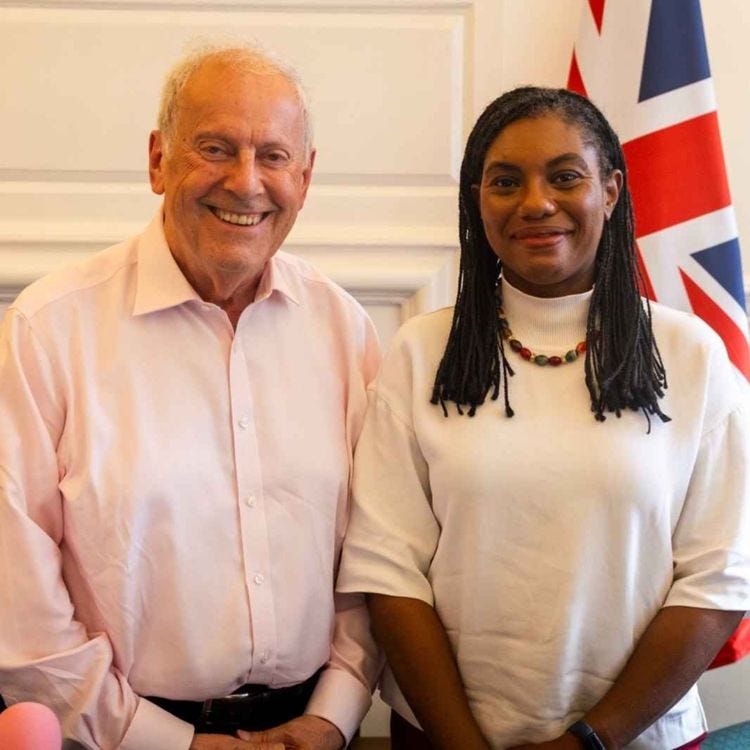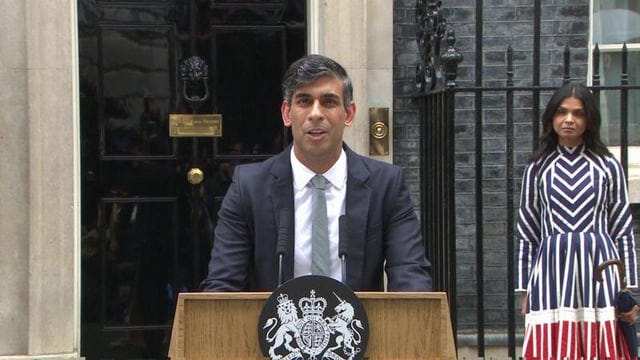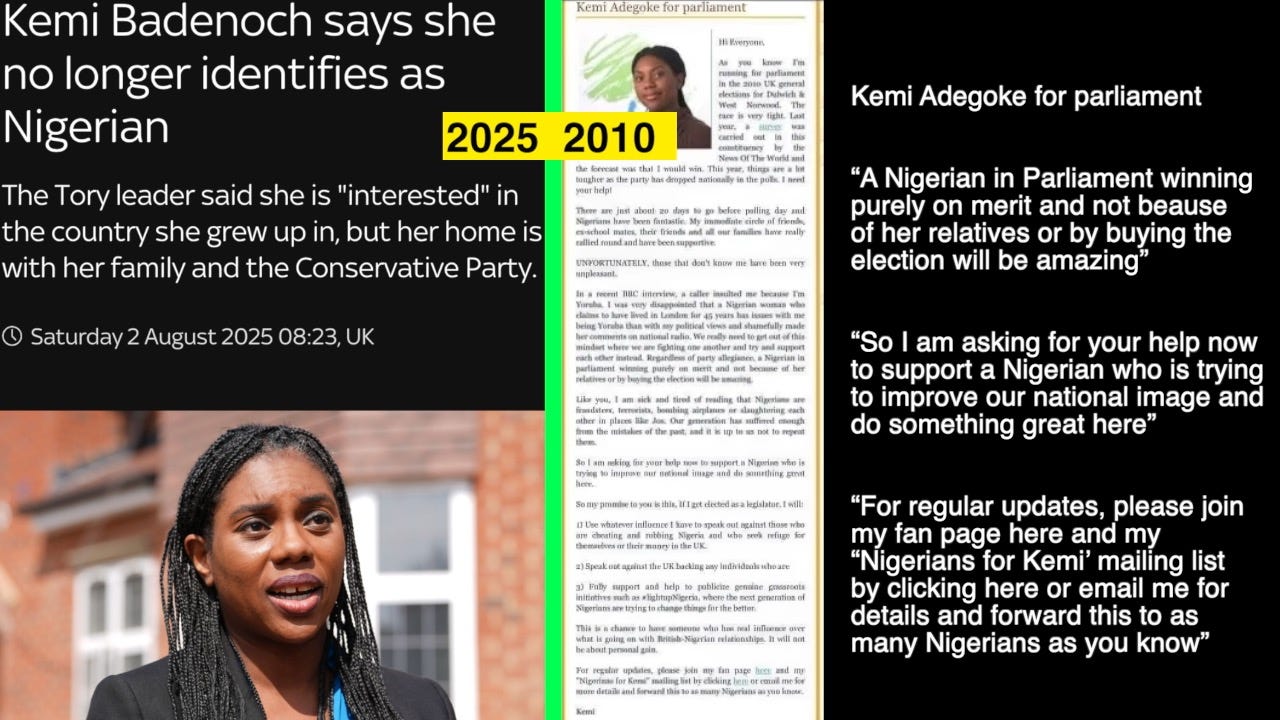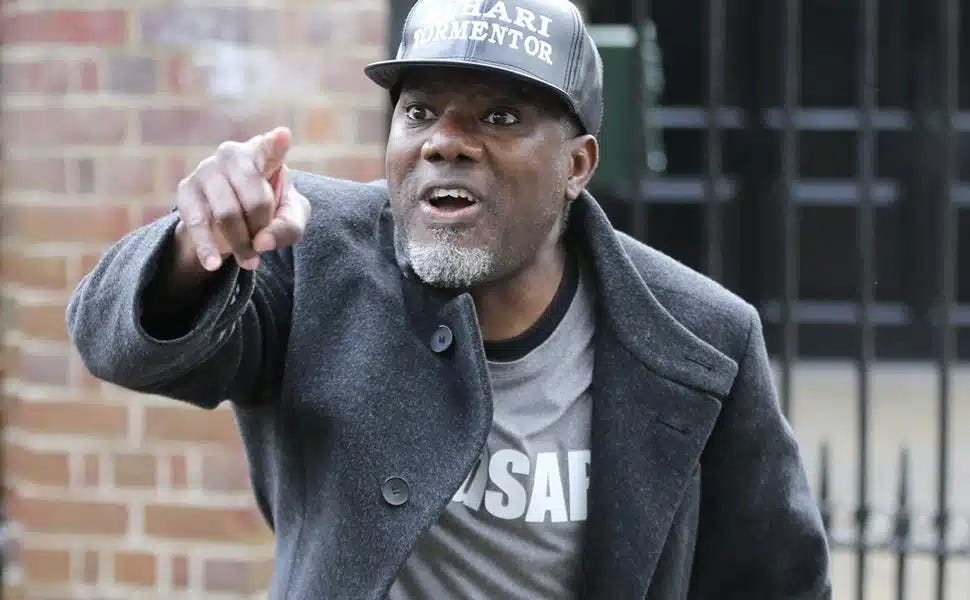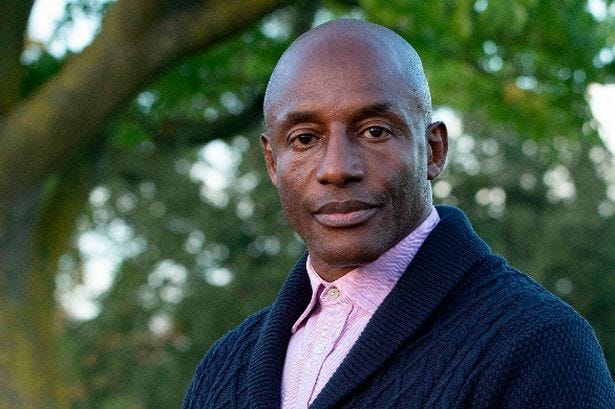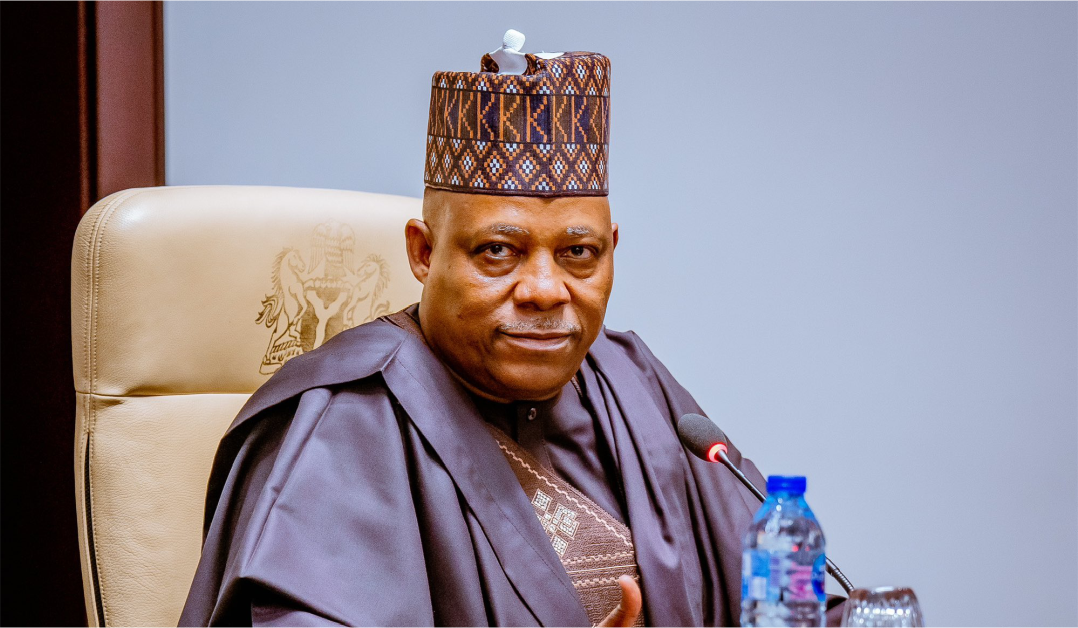Bursting Badenoch’s Bubble — PART I
What can we learn from her recent Bluster and Babble?
Whether BBC News, Sky News, the Guardian or the many others carrying the story, Badenoch’s Babble made headlines — sending ripple effects nationally, within the Nigerian ‘diaspora’ and in her home country of Nigeria. Wait, can I still call it that?
Ok I’ll give her the benefit of the doubt: we’ll ex-out home and instead we will call it her parent’s home country. Let’s humor her for now.
‘“I know Longer Identify as Nigerian,” Badenoch says,’[i]
Read the headline published on BBC News’s website — dated August 2nd, 2025.
Badenoch, leader of the opposition, the UK Conservative Party, since November 2024, was quite the interviewee during her podcast session with former Tory MP and television presenter Gyles Brandreth.
Distancing herself from her recent roots, Badenoch said she was “Nigerian through ancestry” but “by identity, I'm not really.”
Though she added, in a rather diasporic tone,
“I know the country very well, I have a lot of family there, and I'm very interested in what happens there,” she said. “But home is where my now family is.”
Despite asserting a British identity, the above quote is unequivocally diasporic. On this note alone, any section(s) of the British electorate have every right to question her true stance.
Ultimately, it’s either she’s in or out. Granted, we live in a globalized world and some may point to this as justification for her retaining interest in her parent’s home country. However, it’s one thing for a British person to attempt to balance both a nativist identity and retain diasporic consciousness; it’s another thing entirely for a potential Prime Minister to do so.
Some may cite that her potential emergence lends credence to the growing calls of “we must take our country back.” Hmmm . . . this is a contentious premise, and let’s face it, Rishi Sunak was the first ethnic minority Asian Prime Minister in history.
However, Sunak’s case is different. He was born and reared on British soil. There is no chapter of life in which he grew up in India and later embarked on a de facto self-imposed political exile. Moreover, he didn’t publicly call for the Indian diaspora to support his [successful] bid to become MP for the Richmond and Northallerton (Yorks) constituency in 2015.
On the contrary, Badenoch did appeal for the Nigerian ‘community’s’ support in her unsuccessful bid to become the Tory MP for the Dulwich and West Norward constituency at the 2010 general elections. Below is an instructive passage published by the Nigerian PUNCH newspaper:
‘In a message to her Nigerian supporters, Badenoch said, “I need your help. I’m running for parliament in the 2010 UK general elections. The race is very tight. Last year, a survey was carried out in this constituency by the [now defunct] News of the World and the forecast was that I would win. This year, things are a lot tougher as the party has dropped nationally in the polls. I need your help.
“In a recent BBC interview, a caller insulted me because I’m Yoruba. I was very disappointed that a Nigerian woman who claimed to have lived in London for 45 years had issues with me being Yoruba than with my political views and shamefully made her comments on national radio.
“We really need to get out of this mindset where we are fighting one another and try and support each other instead. Regardless of party allegiance, a Nigerian in parliament winning purely on merit and not because of her relatives or by buying the election will be amazing.
“So I am asking for your help now to support a Nigerian who is trying to improve our national image and do something great here,”’[ii] she added.
It doesn’t get more diasporic than this.
‘Exploiting her roots for political gains’
Given the above extracts, it is unsurprising that she attracted criticism for the huge volte-face she made. From the likes of former England international / Nigerian-descended footballer John Fashanu to political jobber Reno Omokri, to incumbent VP of Nigeria, Kashima Shettima, she has not been short of reproach.
Outside of the Nigerian political sphere, many from her home country have accused of her of being a ‘sell-out;’ pulling up the drawbridge once she had escaped Nigeria or ‘japa’ as Nigerian’s call the phenomenon of permanently relocating from Nigeria in search of saner, civic climes. Arguably the most extreme has been ethnically motivated: branding her a typical Yoruba, or its cognate Yariba. According to the Yoruba politician and former Nigerian Minister of Aviation Femi Fani-Kayode,
“The name “Yoruba” derives from “Yariba” and it means “shady and unreliable”. I reject that strange name and label and I hope and pray that the good people of South Western Nigeria will see the wisdom in doing so too.
“I am not a “Yariba” or “Yoruba” but an “Omo Karo Jire” or an “Ooduwan” and my language is not “Yoruba” but “Anago”. We are what we call ourselves. We are not “shady and unreliable” (Yariba) and we must not accept names that are given to us by our historical adversaries.”
Rather damningly, he added,
“The British named our nation “Nigeria” meaning “area of darkness” and the Fulani named our ethnic nationality “Yariba”.[iii]
Put together this means “a group of deceitful, shady, treacherous usurpers and bastards from an area of darkness.”
This scattered my head, honestly. I’ve seen the Yariba designation used mockingly and with derision on social media platform, X. In fact, it has proliferated in use in the last few months as a counter slur. This is in response to the presidency’s politically sponsored abuse and propaganda towards non-Yoruba Nigerians and overwhelmingly, the Igbo ethnic group.
In light of the above, I couldn’t help but consider the perverse ironies of Fani-Kayode’s unequivocal statements and the brand of criticisms leveled at Badenoch. The harshness deserves more spotlight. Stay tuned for part II as we explore the significance of Badenoch’s stance.
[i] “I No Longer Identify as Nigerian, Badenoch says.” BBC News, August 2nd, 2025: https://www.bbc.co.uk/news/articles/c24z77yg16eo
[ii] Biodun, Busari. “How Kemi Badenoch Used Nigerian Roots to Become British MP,” PUNCH Newspaper, December 14th, 2025. Url: https://punchng.com/how-kemi-badenoch-used-nigerian-roots-to-become-british-mp/
[iii] “Femi Fani-Kayode: How the Fulani Named South-West People ‘Yariba,’” Daily Post, October 23rd, 2019. Url: https://dailypost.ng/2019/10/23/femi-fani-kayode-how-the-fulani-named-south-west-people-yariba/



